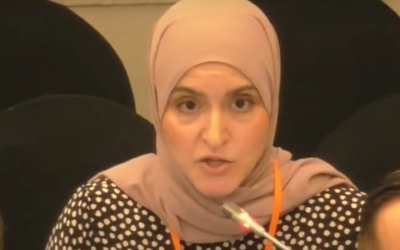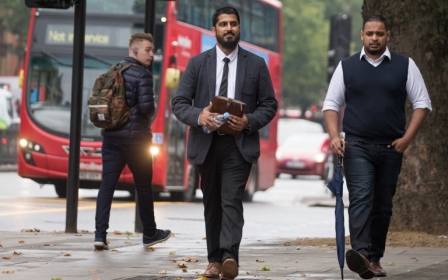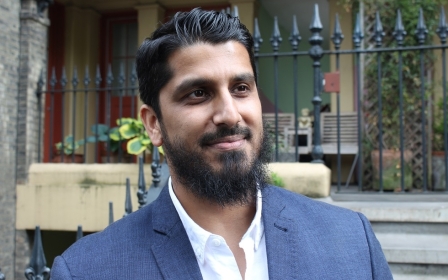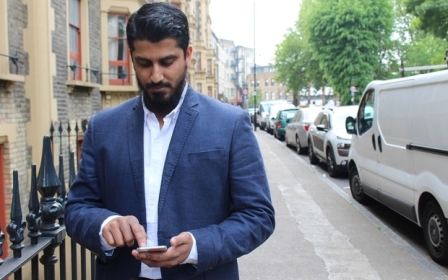Cage director links French travel ban to criticism of 'Islamophobic policies'
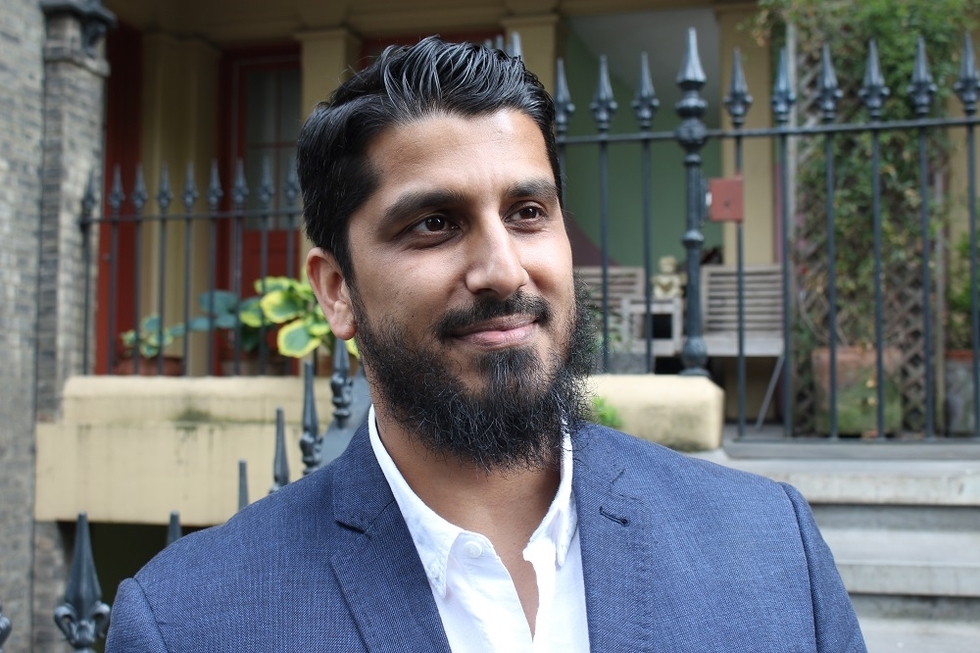
The director of a British advocacy group has accused the French government of banning him from entering the country because it cannot handle "strong, intelligent public critique" of its policies towards French Muslims.
Last week, Muhammad Rabbani, the managing director of London-based Cage, was barred from entering France and detained for 24 hours after French authorities said he threatened "public order".
The French interior ministry handed Rabbani a banning order which accused him of spreading conspiracy theories about "Islamophobic persecution" in France.
"I was a detainee, and they put me in a cell and locked me up for a few hours before processing me in a French detention centre where they held asylum seekers and others awaiting deportation," said Rabbani.
"Then someone from the national security division of the French interior ministry came to question me after a police officer gave me the letter banning me from the country."
New MEE newsletter: Jerusalem Dispatch
Sign up to get the latest insights and analysis on Israel-Palestine, alongside Turkey Unpacked and other MEE newsletters
When asked if he was surprised by the banning order and arrest, Rabbani said: "I have been doing this work for nearly two decades and can't say I was worried - it's like an occupational hazard - but not something you expect to happen in a Western liberal democracy and proof of the authoritarian style of governing when they encounter strong, intelligent public critique."
Following his return to the UK, Rabbani said he was subsequently stopped by British police for 90 minutes and questioned under Schedule 7 of the UK Terrorism Act - controversial powers allowing border police to detain and question anyone passing through an airport or port to determine if they are involved in terrorism.
In 2017, Rabbani was convicted under the Terrorism Act for refusing to hand over passwords to his electronic devices, including his laptop and phone, at Heathrow airport during a Schedule 7 stop.
Rabbani said he would explore all legal avenues to overturn the ban.
In 2020, the French interior ministry banned Rabbani from entering France. But after two years of litigation, a French administrative court overturned the ban in 2022.
The new ban has come to light with France still on edge following days of civil unrest in cities around the country after Nahel Merzouk, a teenager of Algerian and Moroccan descent, was fatally shot by police in Nanterre, west of Paris.
The interior ministry outlined the reasons for banning Rabbani in a document dated 31 October 2022 which said: "His presence on national territory would constitute a serious threat to public order and [the] internal security of France".
The ban cited Rabbani's conviction in the UK for refusing to disclose his mobile phone passcode when he was stopped in 2017 under Schedule 7 powers.
France imposed the ban a month after Rabbani addressed a meeting of the Organisation for Security and Cooperation in Europe (OSCE) in Poland in September 2022, where he accused the French government of having a "racist government agenda" and "terrorising" its Muslim community.
When Rabbani spoke at the OSCE meeting he said that France had "joined the company of China and India, who are both carrying out a religious persecution of an entire Muslim minority".
Commenting on his ban, Rabbani said: "I was banned from entering France because of a speech I made at the OSCE conference in September last year by highlighting and exposing the repressive policing strategy that targets Muslims."
MEE has contacted the French interior ministry for comment.
This article is available in French on Middle East Eye French edition.
Middle East Eye delivers independent and unrivalled coverage and analysis of the Middle East, North Africa and beyond. To learn more about republishing this content and the associated fees, please fill out this form. More about MEE can be found here.


